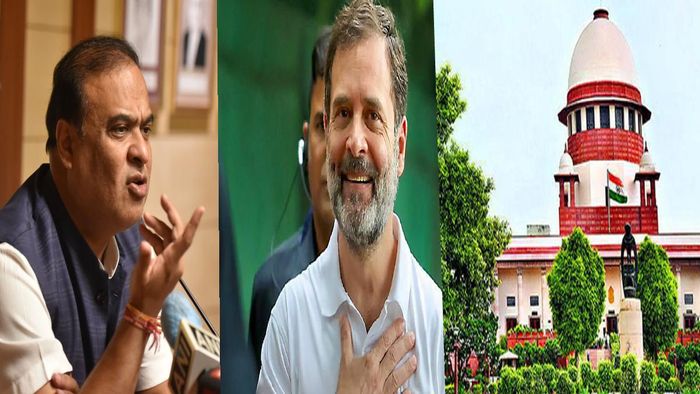Assam CM Himanta Biswa Sarma highlights SC's critique of Rahul Gandhi's utterances amidst celebrations
In Para 8 of the Supreme Court's verdict, it was explicitly stated that "the utterances by Rahul Gandhi are not in good taste; a person in public life is expected to exercise a degree of restraint while making public speeches and he ought to have been more careful."

- Aug 05, 2023,
- Updated Aug 05, 2023, 6:34 PM IST
Assam Chief Minister, Himanta Biswa Sarma on August 5 took to Twitter to shed light on certain crucial aspects of the recent Supreme Court stay order on the conviction of Congress leader Rahul Gandhi in the 'Modi-Thieves' defamation case, which ultimately led to his disqualification as a Member of Parliament (MP). While the decision was widely celebrated, the Chief Minister highlighted parts of the verdict that were not given enough attention in the public discourse.
In Para 8 of the Supreme Court's verdict, it was explicitly stated that "the utterances by Rahul Gandhi are not in good taste; a person in public life is expected to exercise a degree of restraint while making public speeches and he ought to have been more careful." This particular reference to Rahul Gandhi's previous contempt case showcased his credibility as a repeat offender, raising questions about his conduct in the public domain.
Furthermore, in Para 12, the Supreme Court made it clear that the stay on conviction would not have any influence on the ongoing appeal process at the lower court. This ensures that the legal proceedings will continue without any disruption, allowing the case to be dealt with impartially.
Chief Minister Sarma emphasized the importance of public figures exercising caution and restraint while making public speeches, as their words hold significant weight and can have far-reaching consequences. It serves as a reminder to those in public life to be mindful of their language and the potential impact of their statements.
The order of the Supreme Court, as tweeted by CM Himanta Biswa Sarma, granted leave and heard arguments from both Dr. Abhishek Manu Singhvi, learned senior counsel for the appellant, and Mahesh Jethmalani, learned senior counsel for respondent No.1. The appeal challenges the judgment and order passed by the learned Single Judge of the High Court, dismissing the revision petition and rejecting the prayer for stay of conviction.
CM Sarma pointed out that the sentence for the offence punishable under Section 499 of the Indian Penal Code is simple imprisonment for two years or a fine or both. The learned Trial Judge awarded the maximum sentence of two years without providing sufficient reasons for doing so. This led to the provisions of sub-section (3) of Section 8 of the Representation of the People Act, 1950, coming into play and disqualifying Mr. Gandhi as an MP.
The Chief Minister stressed the importance of reasoned decisions by the Trial Judge and urged for expeditious disposal of the appeal by the Appellate Court, ensuring justice is served impartially. The process should be transparent and fair, allowing all parties involved to present their arguments and defend their positions.